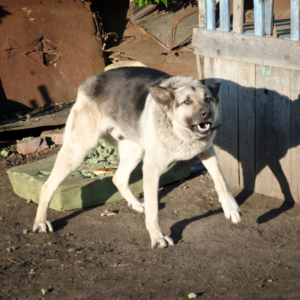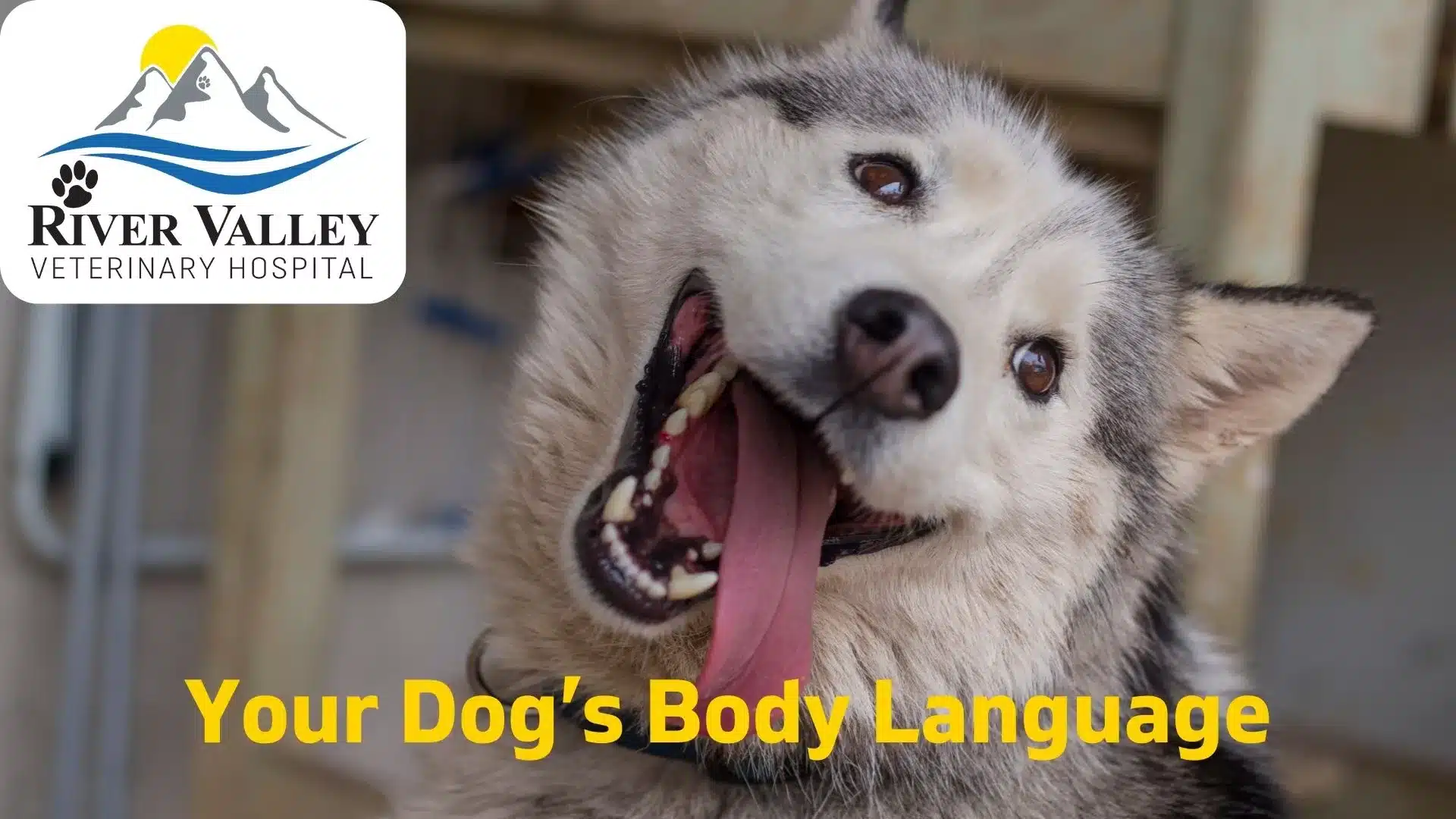Veterinarian in Fox Chapel | Your Dog’s Body Language Part 2
Welcome to part two of decoding your dog’s behaviors and body language! We are joined by resident expert, and owner veterinarian in Fox Chapel, Dr. Linkenheimer. He has owned the River Valley Veterinary Hospital for over 25 years, opening his clinic out of his extreme love of animals. Not only is he a veterinarian, but is also a pet owner, and has gained valuable insight to our furry family members. Here’s what you should know about what your pet is saying, and what you should do about it!
Leaning Forward

Exposing Tummy
There are a few types of an exposed tummy pose for dogs, according to the expert veterinarian in Fox Chapel, Dr. Linkenheimer. One is a submissive pose, they are showing that they are not a threat. They will be on their back, with their paws and tail tucked in. However, if their tail is wagging, their butt is wiggly, and they have relaxed ears and eyes, then the dog is so happy and excited! They will often take this position when you come home from work or school. They are so excited, their body just can’t handle it!
They also trust you completely, and have no problem showing their most vulnerable parts to you. Often people take it as a sign that their dog is looking for tummy pets. That’s often the case, agrees veterinarian in Fox Chapel expert, Dr. Linkenheimer. They want play time, or some love and affection from their most important people!
Marking Territory Or Scratching Their Back
If you notice your dog is wiggling around a lot while on their back, they could be getting their scent onto something, or trying to pick up a scent – dogs love to roll around in things they think smell wonderful! Sometimes it will require having a bath, says Dr. Linkenheimer, which is a good reason to be aware of them doing this. However, another reason to be aware is your dog could be itchy. Which in and of itself isn’t a problem – what’s an itchy dog to do? But if they are doing it a lot, that could indicate they might have an allergy.
Often, allergies are very easily treated with shampoos, a diet change, or medication. If you notice your dog rolling around more often than normal, bring them in to River Valley Veterinary Hospital for an assessment to be sure!
Veterinarian in Fox Chapel | Is Barking Inevitable?
People understand that barking and growling are often a sign of aggression, displeasure or fear. And most dog owners know that their dog will sometimes engage in this behavior, but is it always aggression or fear, asks veterinarian in Fox Chapel Richard Linkenheimer. Not always, often these are learned behaviors that the dog realizes will get them what they want. However, if your dog does bark or growl to get their way, it’s never too late to retrain them into different behaviours.
 Protecting You or Talking to You?
Protecting You or Talking to You?
If your dog is facing you and barking, they definitely are trying to get you to do something, or because they are looking for assurance. If they do it when you get home from work, they’re excited to see you! But what about when you’re not the center of their attention? For example, if the dog barks when someone knocks on the door, or rings the doorbell, the dog is simply acting on instinct and protecting his territory. If your dog is barking at something out the window, they are ensuring the safety of their perimeter.
Minimizing Barking
But what should you do with excessive barking? While all instances of barking cannot be eliminated totally, there are things that you can do to minimize it according to veterinarian in Fox Chapel. For example, when they want your attention, ignore your dog, but reward them when they are quiet! If they bark when you get home from work out of excitement, do not give them attention until they quiet down, and they will learn that they will get attention faster if they are silent when you get home.
And finally, if your dog is barking at the door, or at things outside the window, the last thing you should do it yell at them! This will only show the dog that being loud is good! Instead, talk to your dog in hushed, soothing tones and then reward them when the barking stops.
Raised Hair

Raised hair is a response of a dog’s parasympathetic nervous system. The hair raises up, making them appear larger in order to persuade a perceived threat that the dog is larger and more dangerous, and hopefully cause the threat to go away. It will happen when the dog is anxious, fearful or getting ready to attack. If your dog has raised hair, talk to them in a soothing voice and try to get them out of that stressful situation!
Pacing
A dog pacing often indicates stress, according to Dr. Linkenheimer. They can’t settle down, because there is something present that is stressing them out. Consider the environment, are there loud or unfamiliar sounds? A dog’s hearing is extremely keen. Something that isn’t obvious to you may be causing your pet anxiety. For example are fireworks going off somewhere, or is a rain, wind or thunderstorm currently raging outside? However another reason why your dog may be pacing is because they may be in pain or have a medical condition.
And in older dogs, pacing can be a sign of dementia. These are all very good reasons to get your pet to an excellent veterinarian in Fox Chapel to get to the bottom of this behavior. Even if your dog is stressed, there are medications and supplements to help your pooch become more placid.

Get To Know Your Own Dog – Contact Us!
Not all dogs exhibit these behaviors says veterinarian Fox Chapel. And ultimately, your experience with your dog will help you gain important insight into your dog’s mind. But when you know what some kinds of behaviors mean, you will learn faster about your dog. As you respond to what your dog is saying with their actions, your bond will deepen. If you have any more questions about your pet’s behavior, or if you have any questions about your pet’s health, contact the best veterinarian in Fox Chapel at River Valley Veterinary Hospital today! The compassionate staff can’t wait to meet you and your furry family member!



 Protecting You or Talking to You?
Protecting You or Talking to You?
